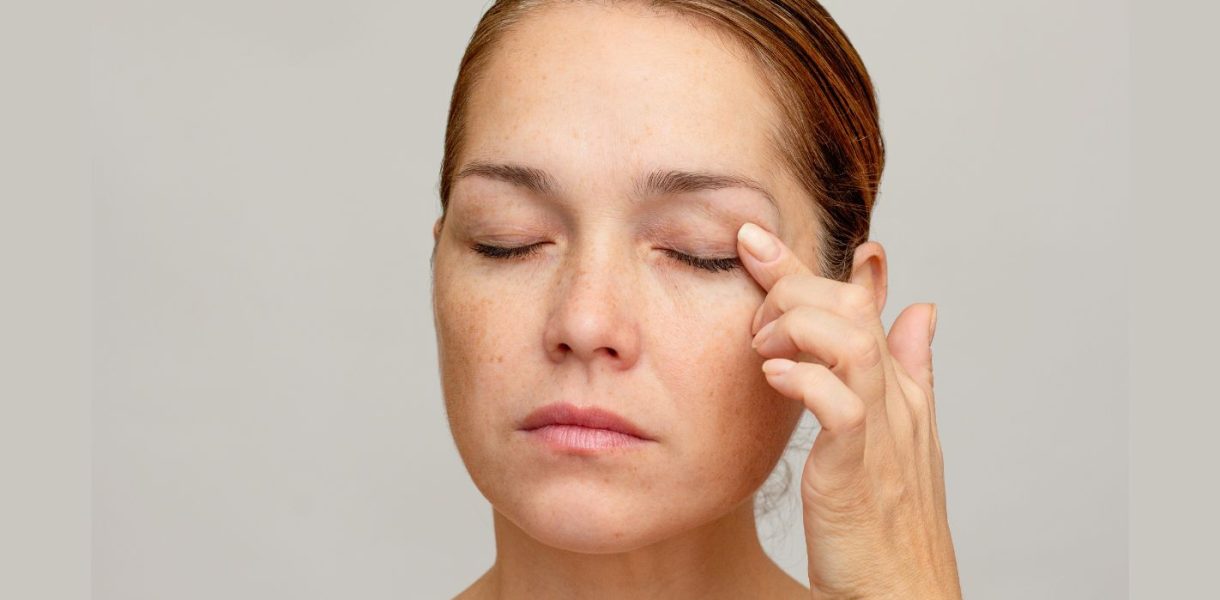Noticing a change in your skin tone to yellow or dull? You may have a yellow skin tone for various reasons, including dietary habits, liver health, dehydration, or too much sun. Mild yellow skin tones are generally harmless, but yellowing skin or a persistent yellow tone in your skin may signal an underlying problem.
Here are some ways to get the glow back into your skin.
What Causes Yellow Skin Tone?
Identifying the cause is essential, as the underlying issue will drive your treatment options. Possible culprits for yellow skin tone:
Jaundice: Jaundice is an excess of bilirubin in the blood, often seen in liver problems. Generally, jaundice causes the skin to become yellow and leads to some discoloration of the body’s tissues.
Diet: Diet can lead to a high yellow tone in the skin if excess beta-carotene or carotenoid foods are consumed.
Examples include carrots, sweet potatoes, and other foods that are yellow or orange in color and contain the abundant pigments beta-carotene, lutein, or other carotenoids.
Dehydration: When the body is dehydrated and you are not drinking enough water, dehydration causes the skin to appear dull and yellow-tinged.
Sun Damage: Too much sun exposure can change the color distribution of skin pigmentation and lead to discoloration.
Vitamin Deficiencies: Vitamin B12 or iron deficiencies can disrupt the distribution and healthy blood supply to tissues, certainly changing skin conditions and pigments.
Smoking & Pollution: Environmental toxins, as they relate to smoking and pollution, will likely contribute to dullness, yellow skin, or even discoloration from a viral or disease-of-the-skin perspective.
Liver Problems: Liver problems associated with liver function and potentially liver enzyme levels are areas to investigate for changes in skin condition as well.
How to Reduce Yellow Skin Tone
If it is not due to a medical condition, these tips may help:
Hydrate Well
Drink Plenty of Water Consuming adequate water eliminates toxins from your body and can increase the clarity of your skin tone. Aim for at least eight glasses daily to keep your skin hydrated and plump. You can also drink herbal teas and coconut water to stay hydrated.
Eat a Balanced Diet
Increase your diet’s Vitamin C intake (i.e., oranges, berries, leafy greens). If your eating habits contribute to a yellow skin tone complexion, cut back on beta-carotene-rich foods. Consider adding some antioxidant-rich foods, like tomatoes and bell peppers, to boost the skin’s radiance.
Support Liver Health
Take Care of Your Liver Drink herbal teas like milk thistle or dandelion and limit alcohol to balance the skin’s yellow tone. For improved detoxification, add liver-friendly fruits and vegetables, like beets, turmeric, and leafy greens, to your diet.
Exfoliate Regularly
Exfoliate on a Regular Basis Too, a buildup of dead skin can contribute to a dull complexion. Use a gentle exfoliant like sugar or oatmeal to help brighten yellow skin tone. Exfoliating twice a week will aid in the buildup of dead skin and reveal fresh, glowing skin.
Try Brightening Masks
Turmeric & Honey: Turmeric is effective at dealing with inflammation, and honey adds hydration to yellow-toned skin. Use this mixture on the face twice weekly for a more balanced skin tone.
Lemon & Yogurt: The vitamin C in lemon helps to lighten and even out yellow tones, and yogurt provides an exfoliation effect. Leave it on the skin for 10 minutes before rinsing the face for a refreshed look!
Wear Sunscreen
Sun damage will only intensify yellow skin tones. Use an SPF 30 daily to ensure skin-level protection. Sunscreen will prevent ongoing pigmentation and support an even complexion. Wearing sunscreen on cloudy days is important to provide an extra layer of defense.
Get Enough Sleep
Not enough rest dulls the complexion. Aim for 7-8 hours of sleep every night. Good sleep allows the skin to repair itself, reducing dullness and giving it a healthy glow.
Avoid Smoking & Alcohol
Both smoking and alcohol dehydrate the skin, which causes it to appear to have more yellow tones over time. By cutting back on smoking and alcohol, you improve circulation and make your skin look youthful and vibrant.
When Should I See a Doctor?
If yellow skin tone continues after making lifestyle changes or if you have symptoms in addition to yellow skin tone, such as fatigue, weight loss, or abdominal pain, you should see a doctor. The meaning of yellow skin tone can vary, and sometimes, it can mean cases of jaundice with vitamin deficiencies that require medical assistance.
Final thoughts
Hydration, a healthy diet, and proper skin care often improve yellow skin tones. Protect your yellow-tone skin, nourish it well, and attain a natural glow. Small changes daily will drastically change your skin over time.
Have you ever used any of these remedies?
FAQs
What type of skin tone is yellow?
Generally, yellow skin tones are warm; you fall under the golden or peachy skin tone classification. Earthy colors like brown, olive, and mustard look best with a warm skin tone.
White gold vs yellow gold skin tone, which is better?
Individuals with warm undertones (yellow or olive skin) suit yellow gold the most, while cool undertones look better in white gold or platinum. If you have a yellow skin tone, gold jewelry will bring out the natural warmth of your skin tone.
What complexion looks good with yellow?
Yellow complements warm yellow complexions. If you have cooler undertones, choosing a mustard or deeper yellow may be best rather than regular yellow. Yellow could be a flattering addition to your wardrobe for skin tones with olive or golden undertones.

